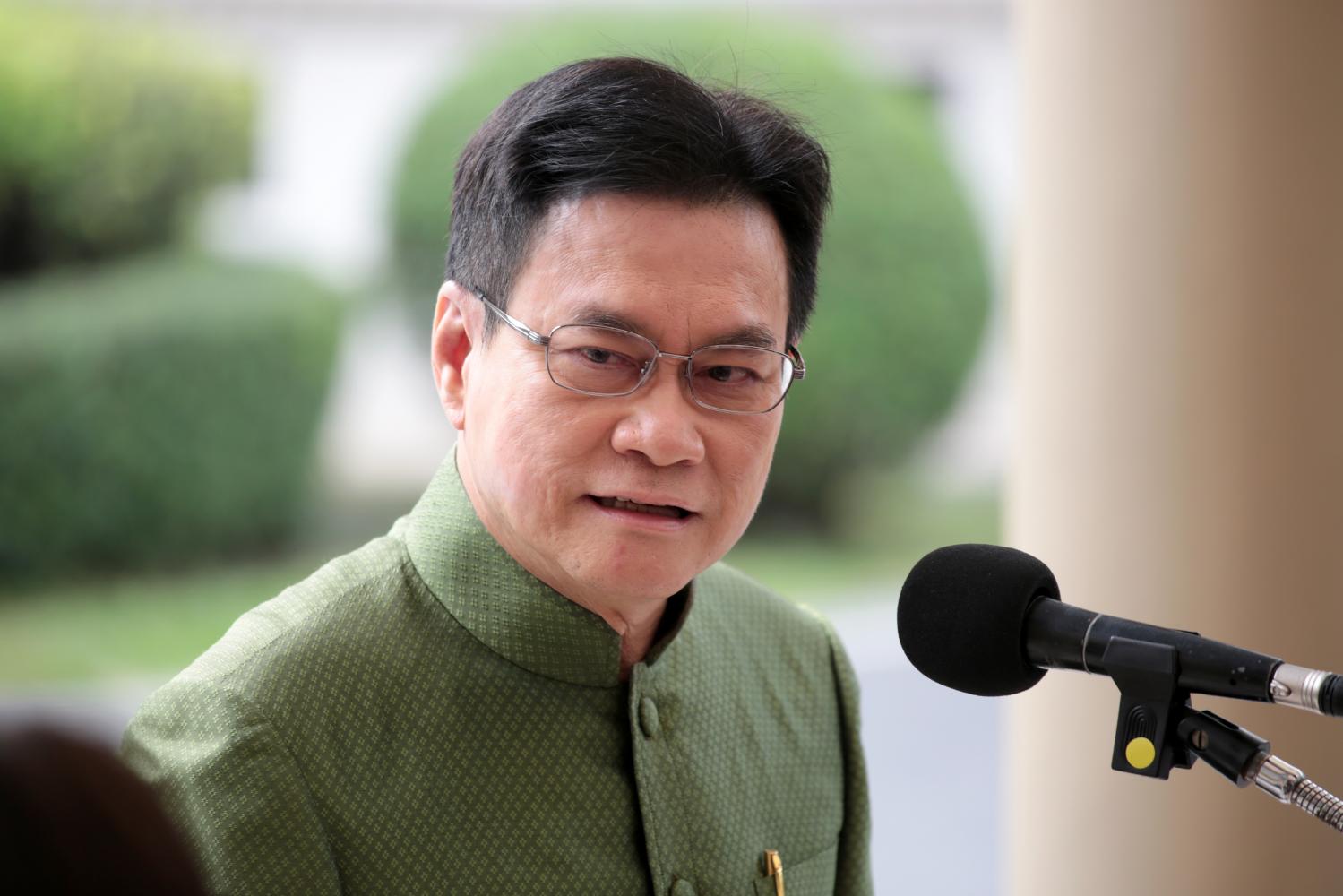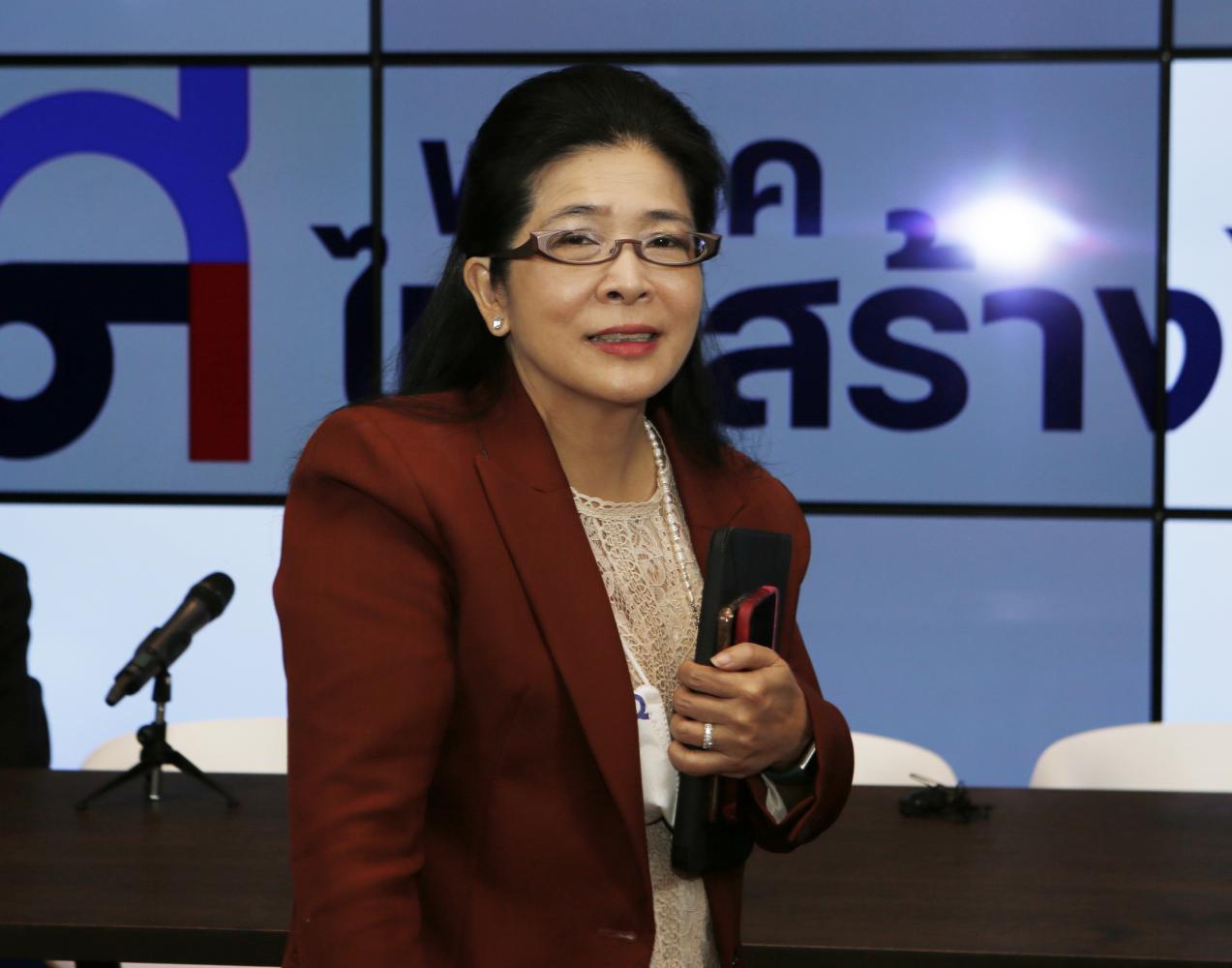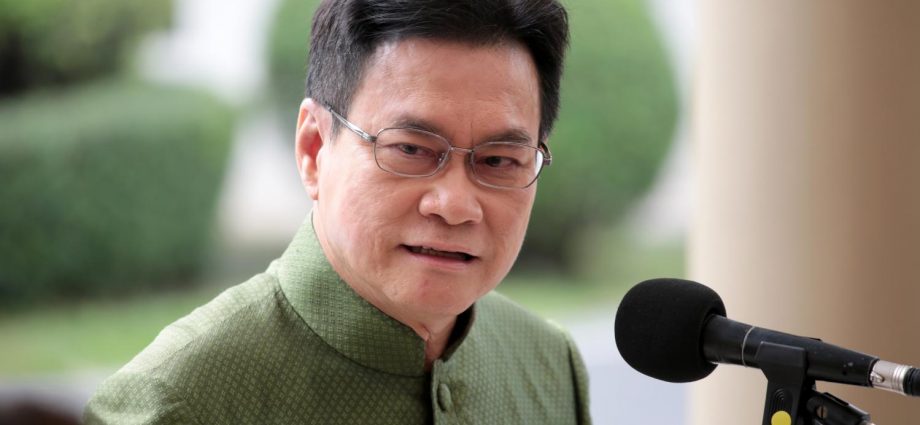
Stopping the bleeding
The Democrat Party has its work cut out to reverse its political fortunes ahead of the next election.
It has been beset by strife brought on by its leadership which has been pitted against members who do not see eye to eye with the clique now in control of the country’s oldest party.
The Democrat Party was haemorrhaging members, many of them seasoned politicians who had called the party their second home.
Their sentiment and loyalty to the party took a turn for the worse after Jurin Laksanawisit was elected as leader, succeeding Abhisit Vejjajiva who stepped down following the party’s humiliating defeat in the previous poll in 2019 when it only won 53 seats, half of its projected tally.
From one of the titans in terms of size, the Democrat Party found itself relegated to a mid-sized party. Mr Jurin rose to the leadership at a time when the party suffered one of the biggest setbacks in its history.
A political source said Mr Jurin landed the top job at a time when there was nothing to lose in proving his worth.
The source said he had been riding high in the leadership contest with the blessing of the Democrats’ patriarch Chuan Leekpai.
It came as no surprise then that Mr Chuan recently came forward to protect the party run by Mr Jurin. In the process, the source said Mr Chuan was also being protective of the party leader, who has been blamed by some party defectors for playing the cronyism card which may explain why the party has plunged to its low ebb.
Mr Chuan has maintained Mr Jurin won the mandate to lead the party and that he became leader on his own merit.
Sathit Pitutecha, a Democrat deputy leader, suggested that former party leaders Mr Abhisit, Mr Chuan and Banyat Bantadtan be roped in to assist the party in its election campaign and offered places high up on the party list.
He even went on to propose that Mr Abhisit occupy the party’s second prime ministerial candidate slot, after Mr Jurin.
However, Mr Sathit, also a deputy public health minister, was snubbed by the party, which maintained it would be a break from tradition to nominate two people as prime ministerial candidates. The party conventionally chooses the party leader to be its sole prime ministerial candidate.
The source said that even if the party fielded Mr Abhisit as a second PM candidate, the former prime minister would unlikely accept the nomination and compete with Mr Jurin, which might exacerbate the already widening rifts in the Democrats.
On the other hand, Mr Jurin might not be terribly enthused by the prospect of Mr Abhisit staging a comeback. After all, Mr Jurin has managed to keep expanding his influence over the party with his “opponents” having thinned out through defections.
The defections of several party stalwarts have prompted Mr Chuan, the most respected figure in the party and also the parliament president, to set the record straight.
He said: “The conflict [in the Democrats] might remain, but it won’t get any worse.”
“I have asked our party members not to be perturbed by what’s going on and stay the course and help the party out,” Mr Chuan said.
Meanwhile, Mr Jurin declared in Songkhla this week that the next poll would be a battle between the Democrats and parties that either used money as bait to win votes or those that lured defectors from other parties.
Reciting a metaphor used previously by Mr Chuan, Mr Jurin said the rival parties were “fishing in a friend’s fishpond”. It has come to refer to parties poaching from each other’s ranks.
Earlier, Mr Chuan revealed that some Democrats have remained loyal to the party, reasoning that turning their backs on the party at this time would make them look untrustworthy.
However, Mr Chuan’s comments have not gone down well with some former Democrats.
Mr Chuan has been quoted by Chartpattanakla Party leader Korn Chatikavanij as telling a television talk programme that he had tried to persuade Mr Korn not to leave the party on Jan 15, 2020. However, Mr Korn would not listen.
His exit was thought to have been triggered by his defeat in the party leadership race, which Mr Jurin won.
Mr Korn, who previously served as finance minister under the Abhisit Vejjajiva administration, wrote on Facebook in response to Mr Chuan’s remark. He explained that after he quit the Democrats, he never spoke ill of the party. He had his own political endeavours to pursue.
As far as he was concerned, the Democrats had changed. He said it was not the party he used to know.
The former finance minister added that Mr Chuan was entitled to his opinion about him. “But I ask that you lend an ear to different views expressed by people like us who had loved and had faith in the Democrats over a long period of time,” Mr Korn said.
“We feel we’re at a loss and it’s regrettable,” he added.
Not quite cut and dried
In Udon Thani, dubbed the northeastern capital of the red-shirt faithful, the main opposition Pheu Thai Party is riding high in the latest opinion poll released by the National Institute of Development Association, or Nida Poll.

Khunying Sudarat: Eyeing Udon Thani gains
Paetongtarn Shinawatra, the party’s chief adviser on public participation and innovation and head of the so-called “Pheu Thai Family”, led the survey with an approval rating of 48.24% to become the country’s next prime minister.
Trailing behind the daughter of self-exiled former prime minister Thaksin were Move Forward Party (MFP) leader Pita Limjaroenrat and Prime Minister Prayut Chan-o-cha with popularity rating of 11.96% and 10.29%, respectively.
Pheu Thai also has overwhelming support with 61% of respondents saying they will vote for the party in the constituency and party-list systems, according to the same poll carried out Feb 24-March 2 among 1,020 eligible voters.
About 14.41% of responders said they will cast ballots for the MFP, compared with 7.16% who were rooting for the United Thai Nation Party (UTN) of which Gen Prayut is a member and its presumptive PM candidate.
Given the poll result, Pheu Thai which swept all the province’s eight House seats in the 2019 general election is expected to have an easy campaign for the upcoming election in which a total of 10 seats will be up for grabs this time round.
But observers argue that there is still time for Pheu Thai’s political rivals to turn things around in some constituencies if they have strong candidates and can convince voters that they are focusing on issues that concern them.
According to analysts, Pheu Thai is facing the prospect of losing some seats in Udon Thani now that the red-shirt faction, which forms part of the party’s electoral support, has been disunited and weakened.
Supporters of the movement are said to have split into two camps — one associated with Kwanchai Praipana, leader of Khon Rak Udon, and the other affiliated with Anon Saennan, co-founder of the Red-Shirt Villages of Thailand.
While Mr Kwanchai has remained loyal to Pheu Thai, Mr Anon has openly declared he is aligned with Seksakol Atthawong, a former key leader of the red-shirt United Front for Democracy against Dictatorship (UDD), who broke away to back the pro-military Palang Pracharath Party (PPRP) in the 2019 polls. Mr Seksakol has since joined Gen Prayut at the UTN.
Pheu Thai could be looking at a different landscape and making a clean sweep would be no small task for the party when the official election campaign kicks off, according to observers.
Apart from the MFP and UTN, Pheu Thai candidates will be up against the Thai Sang Thai Party (TST) led by Khunying Sudarat Keyuraphan, a former Pheu Thai chief strategist who severed ties with the party in December 2020.
Khunying Sudarat who has a popularity rating of 7.55% in this province is reportedly setting her sights on making some gains here although the party’s approval rating is only about 4.9%.
The TST’s candidates are said to have good connections with local politicians whose support is essential in brightening up a political party’s prospects of winning a seat.
According to observers, key constituencies to watch are Constituencies 2, 3, 4 and 7 where Pheu Thai is expected to face tough challenges.
In Constituency 2, Pheu Thai has reportedly ditched incumbent MP Suratin Pimarnmekhin for newcomer Watcharapol Khaokham, so it should brace for fierce competition from Mr Suratin who has yet to announce his new political home.
Constituency 3 is predicted to be a three-horse race between the current Pheu Thai MP Anan Sriphan, Nattayot Phajuang, a former red-shirt leader who is tipped to run under the UTN’s ticket, and Rang Thurapol, a potential candidate from the TST. Mr Anan and Mr Nattayot are known to share the support base, and if they undercut each other Mr Rang may be handed victory.
Another current Pheu Thai MP, Khajit Chainikhom, will have to give it his all defending his seat in Constituency 4. His team members have lost to candidates backed by the TST in local elections and it is believed this is Khunying Sudarat’s best chance of capturing a seat here.
Pheu Thai potential candidate, Thirachai Saenkaew, a defector from Bhumjaithai, will face an uphill task trying to win in Constituency 7. He will be running against former MP, Chakkapat Chaisan, who defected from Pheu Thai to the Bhumjaithai Party.
Analysts predict a comfortable win for Pheu Thai in Constituency 6 with Jutharat Menasawat but reserve their opinions for the contest in Constituency 5 where current MP, Aphorn Sarakham, will stand down in favour of her son, Koravee, to run in the next poll.

